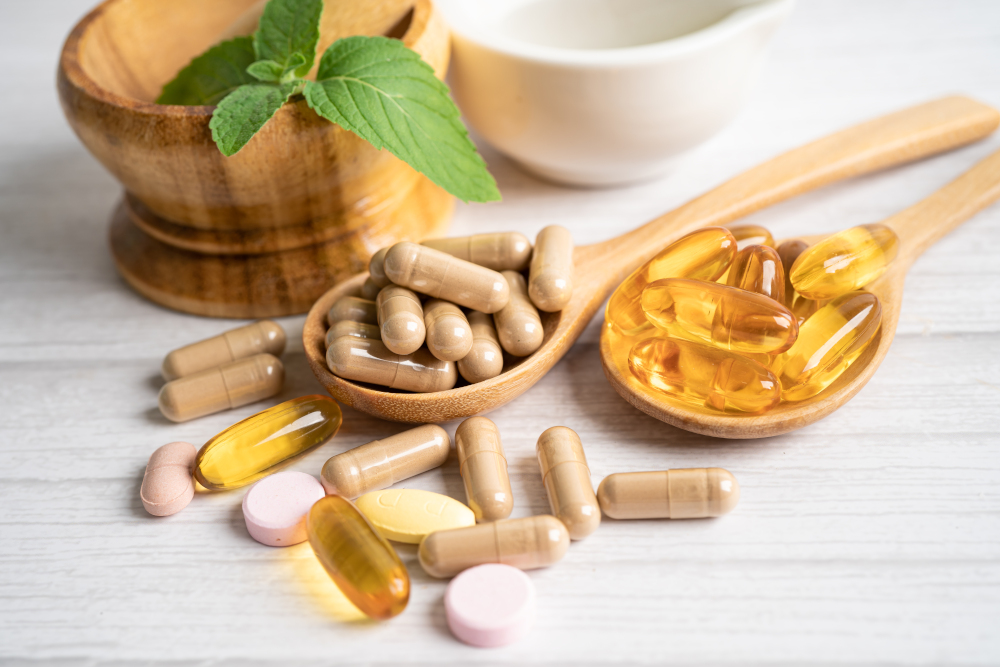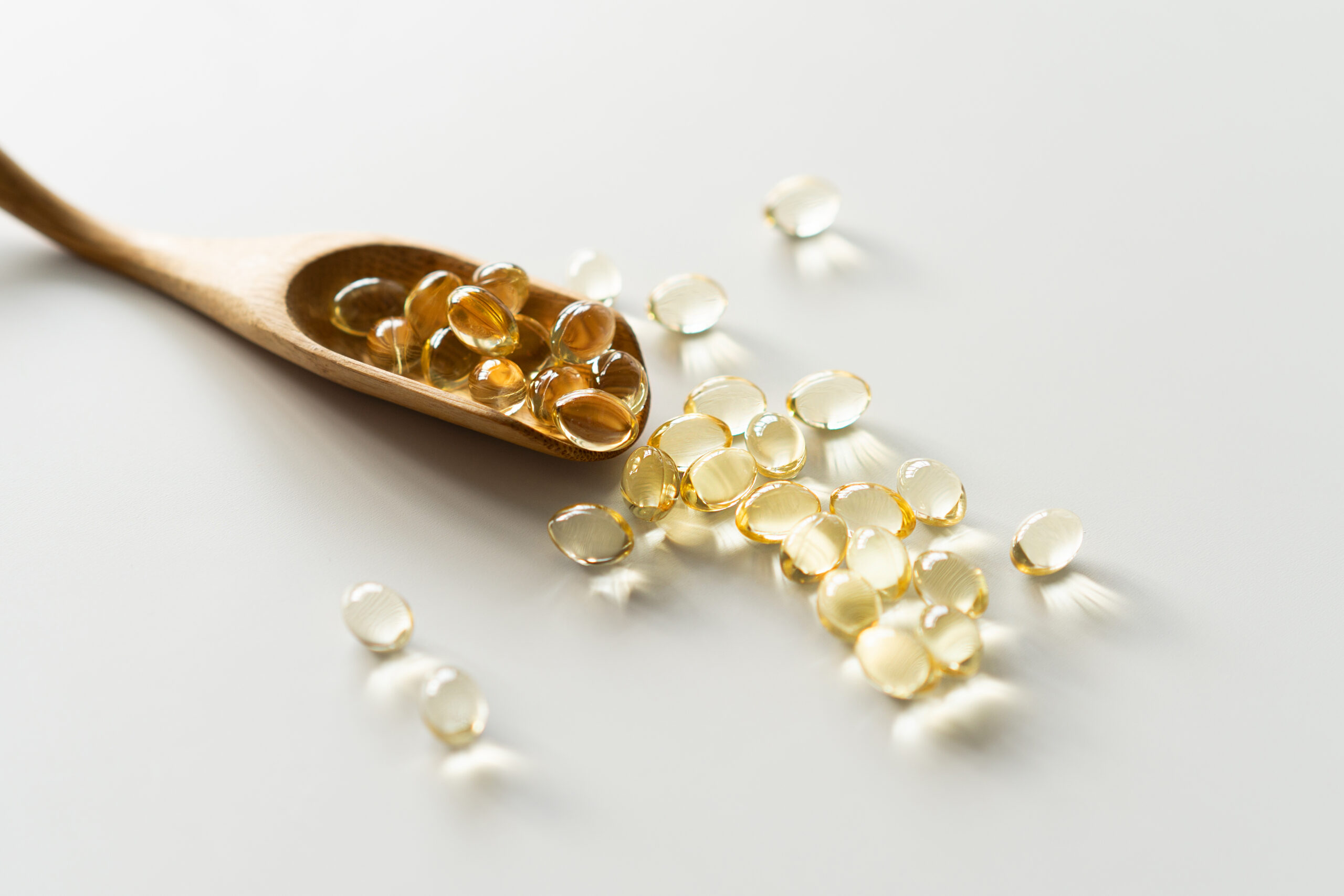A balanced and varied diet is the cornerstone of good health, but in today’s fast-paced world, it can often feel impossible to get it just right. Busy lifestyles often see us prioritising convenience over nutrition, but in the end, this can prove detrimental – and failing to get the right amounts of vital vitamins and minerals can leave you feeling fatigues, worn out and suffering from a host of other undesirable symptoms besides.
Deficiencies are surprisingly common, with the soil used to grow our crops having been depleted of minerals over the years and the task of getting those all important five portions of fruits and vegetables per day into your diet often proving elusive. Then, there are modern diets to contend with – like vegetarian and vegan – which cut out meat and animal products entirely and so require careful management to ensure you’re getting the nutrients they contain elsewhere.
If you’re concerned you might have a vitamin deficiency yourself then it can be difficult to work out if that’s the case without having blood tests run to confirm it – but there are some tell tale signs to look out for that can give you an indicator of your overall health and highlight any possible deficiencies that may warrant further investigation. So if you’re wondering how you can tell if you have a vitamin deficiency then here’s all you need to know.

What is the most common nutrient deficiency in the UK?
One of the most common vitamin deficiencies in the UK is vitamin D. The Government advises that everyone in the UK (between October and March) should supplement with 10mg vitamin D daily, because, whilst we do get a small proportion of our vitamin D through our diet, the majority is created within the body through exposure of our skin to sunlight. In the summer, it’s generally easy enough to get a sufficient amount of daily sun exposure – we’re often out and about in short-sleeve tops and shorts, and simply going about your day is often enough to get the recommended daily minimum of 20 minutes. But in the colder months, we are more likely to cover up and stay indoors, meaning our skin is not exposed to sufficient amounts of vitamin D – and with such little daylight even if you do venture outdoors, it’s almost impossible to maintain healthy levels without supplementation.
B12 is another common vitamin deficiency, and can lead to a condition called pernicious anemia. B12 is a hard-working vitamin that is found mostly in animal products (think meat, milk, and eggs), which means vegans and vegetarians often show signs of B12 deficiency. If you eat a plant-based diet, you will need to supplement and also incorporate fortified foods like nutritional yeast and fortified cereals into your diet regularly to ensure you’re getting your recommended daily amount.
Although these are some of the most common nutrient deficiencies, it is possible to be depleted in any vitamin or mineral. Iron, magnesium and zinc deficiencies also occur regularly, so if you’re unsure which you’re most likely to have then take a look at your diet and identify which areas are lacking, then pay attention to any possible symptoms that may arise.

How do I know if I need vitamins? Symptoms of vitamins deficiencies
Having a vitamin deficiency can have more of an impact on your body than you may realise. Here are some of the general symptoms you might notice, which can signal various different vitamin deficiencies.
- Fatigue and feeling tired all the time
- Feeling run down
- Muscle weakness
- Joint pain
- You get ill a lot and take a long time to recover
- Low mood
- Changes to heart rhythm
- Shortness of breath
- Changes to skin like dryness and itchiness
- Brittle nails
- Hair loss
- Memory loss
- Nausea
These symptoms vary between individuals, and depending on which vitamins you are lacking in, but they are a good indicator in the first instance that you may need to take a closer look at the quality of your diet.
It’s important to bear in mind, however, that these are also symptoms of many other medical conditions, so if you’re concerned then it’s always worth paying your GP a visit to have some tests done and to pinpoint what is causing them.
If you’re confident that you already eat a healthy, balanced and varied diet, then you might assume that you’re safe from deficiencies, but in actual fact, this isn’t always the case. You might still find yourself showing signs of a deficiency – for example, if you have a very demanding lifestyle (you’re always on the go and don’t get much down-time) which means your body is using up nutrients faster than it can replace them, or if you have an underlying illness like a gut problem or autoimmune disease which causes inflammation in the body. Inflammation dramatically inhibits the body’s ability to absorb nutrients in the gut, so you may not be getting as many nutrients as you think. Unfortunately, supplementing with oral tablets won’t increase the amount of nutrients your body is able to absorb if this is the case, so it’s important to consult with a medical professional to determine the best course of action.

How to get more vitamins
If you think you could be low in certain vitamins then you can seek help for peace of mind. Vitamin testing is offered by many private clinics throughout the UK and gives you the opportunity to objectively determine whether you need to supplement your diet with extra vitamins.
If you do have a deficiency, diet is the first place to start making changes, but you may also like to consider the following options:
Oral supplements
For many people, oral supplements are a great way to up vitamin intake. Daily pills are the most common form, but some vitamins can be sourced in sublingual form (drops for under the tongue). They usually take one to three months of daily use to build up sufficient levels in the body.
They are readily available at all supermarkets, pharmacies, and through your GP, but be sure to do your research and make sure you’re purchasing high quality supplements with minimal fillers, and to ensure that you are getting the recommended daily dosage right – as well as learning about any important cofactors you should be taking alongside them. Vitamins and minerals work in teams, and heavy supplementing one without taking relevant cofactors can end up causing other deficiencies as one puts another to work within the body – so don’t neglect this vital step before you begin your new regime.

IV drips
Administered via a cannula in the arm, vitamins are delivered in a clinic (usually for approx 40 minutes, depending on what kind you are having). This provides large doses of vitamins and minerals directly into the bloodstream, avoiding the gut (which makes them an ideal solution for those with intolerances or autoimmune diseases). The effects are generally instant and there is no waiting for the dose to build up over months – so if your levels are severely low then this is a great way to get some quick relief, although it does often take the body a while to adjust to the improved levels and for symptoms to diminish entirely.
The required frequency of IV drips usually depends on your personal health and goals. IV vitamin therapy is available at many locations across the UK, however, it’s always wise to do your research and opt for a doctor-led clinic to ensure that you have a safe experience. If you are looking for an IV drip in London, there are plenty of world-class specialist clinics to choose from. Do bear in mind, though, that as with any medical procedure, there is a small risk of adverse effects.
Take control of your health
If you suspect you might have a vitamin deficiency, it’s always recommended to seek advice from your GP or a specialist to rule out other conditions. You can then start to look at supplementing your diet with vitamins as needed. As they say, knowledge is power, so knowing the facts about your health is key, and will give you the information you need to get back to feeling your best sooner, rather than later.






















